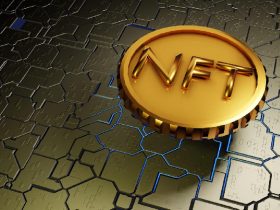Jeju Island, a subtropical province off the South Korean mainland’s south coast, says it wants to use non-fungible tokens (NFTs) to transform its economy.
According to CNB News, the island – which has its own legal and administrative status – wants to use NFTs to spark growth in the tourism industry, agricultural, livestock, and fisheries sectors.
Jeju Island Revamps Crypto Hopes?
Jeju officials have been trying to use the island’s legal system to foster crypto-powered growth since 2018.
Little has come of such efforts so far, however. Seoul has thus far refused to budge on its hardline stance on ICOs, play-to-earn games, and NFT regulation.
However, it appears politicians are now ready to make a fresh bid for change in Jeju.
The Jeju Island Governor Oh Young-hoon told attendees at an IT-related forum this week:
“This year, we are gradually making preparations to focus on digital transformation. The core of all this is Web3. We can apply Web3, including the use of NFTs, to all areas of the government. This will be a step forward.”
Oh added that provincial officials and private sector representatives were “discussing ways to make further progress together.” The Governor added:
“We have a goal of turning Jeju into an ‘NFT city.’ We are even thinking about ways to make payments convenient for everyone – both South Korean and overseas visitors – everywhere in Jeju.”
How Could NFTs Help Boost Jeju Economy?
NFT technology, Oh suggested, could help Jeju Island achieve this goal. Kwon Soo-ho, the head of the Korea Blockchain Industry Promotion Association’s educational operations, also claimed that blockchain technology and NFTs could be used throughout Jeju.
Executives from the Jeju Research Institute, Jeju Creative Economy Innovation Center, and “other related organizations” also attended the event.
Kwon said that NFT-related innovations could be “applied to various fields” in Jeju, including payments and traceability in the agricultural and “livestock products” industries.
Attendees also suggested using NFTs for hikers and walkers on the Jeju Olle Trail, a 437 km network of footpaths on the island’s coastline.
The trail is a major draw for foreign and domestic tourists. Speakers suggested awarding discount-bestowing NFTs to visitors who complete certain sections of the trail.
Hikers on the Jeju Olle Trail. (Rick McCharles [CC BY 2.0])
Other speakers suggested that NFTs could be used to promote sales and subsidies in the agriculture and fisheries sectors.
They also said that officials could use NFTs to help Jeju producers prove the authenticity of their goods and foodstuff.
Hana Bank offers mobile financial certificates in 16 languageshttps://t.co/1J4fhGPTg0
— The Korea Times (@koreatimescokr) March 4, 2024
Jeju is famous for delicacies including pork products from Jeju Black pigs. Another renowned local specialty is the hallabong, a citrus fruit closely related to the satsuma.
Attendees further talked about using NFTs “during currency exchange and payment” processes in Jeju.
They also resurrected talk of blockchain-powered “local currency” (aka local stablecoin) vouchers that could be pegged to the fiat KRW.
Officials said these could be used to provide subsidies and boost community spending in local outlets.







Leave a Reply